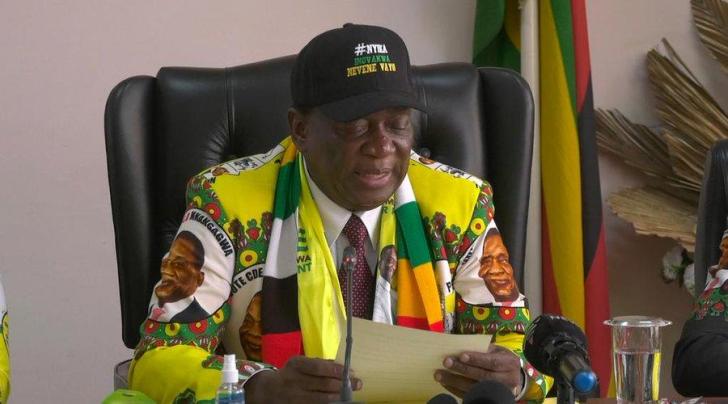News / National
Mnangagwa refuses to extend Presidency despite party resolution
26 Oct 2024 at 12:16hrs |
4 Views

President Emmerson Mnangagwa has made it clear that he will not extend his presidency beyond the 2028 term limit, despite a recent resolution passed by his party, ZANU-PF, urging him to remain in office until 2030.
Patrick Chinamasa, ZANU-PF's Legal Secretary, stated that the resolution, which aims to amend the constitution to facilitate this extension, "will not go anywhere," emphasizing that Mnangagwa is against such a move. Chinamasa's remarks came during discussions at the ZANU-PF People's Conference in Bulawayo, where the resolution was initially proposed.
The proposed extension would have required multiple constitutional amendments, including the necessity for two referendums, making the path to implementation complex and politically fraught. With Mnangagwa's firm stance against the extension, the likelihood of these amendments advancing seems slim.
Political analysts suggest that Mnangagwa's refusal to entertain the idea may stem from a desire to maintain stability within the party and avoid potential backlash from the electorate. His decision not to pursue the resolution aligns with a broader commitment to uphold constitutional governance in Zimbabwe.
The development has sparked a mix of reactions within the party and among the public. While some party members may view the resolution as a move to solidify power, Mnangagwa's rejection is seen as an effort to distance himself from the appearance of authoritarianism.
As the political landscape continues to evolve, the focus will now shift to how ZANU-PF will address the other resolutions passed at the conference and its overall strategy leading up to the next elections. The president's firm stance against extending his presidency underscores a commitment to constitutional limits, which may resonate positively with voters looking for democratic governance.
Patrick Chinamasa, ZANU-PF's Legal Secretary, stated that the resolution, which aims to amend the constitution to facilitate this extension, "will not go anywhere," emphasizing that Mnangagwa is against such a move. Chinamasa's remarks came during discussions at the ZANU-PF People's Conference in Bulawayo, where the resolution was initially proposed.
The proposed extension would have required multiple constitutional amendments, including the necessity for two referendums, making the path to implementation complex and politically fraught. With Mnangagwa's firm stance against the extension, the likelihood of these amendments advancing seems slim.
Political analysts suggest that Mnangagwa's refusal to entertain the idea may stem from a desire to maintain stability within the party and avoid potential backlash from the electorate. His decision not to pursue the resolution aligns with a broader commitment to uphold constitutional governance in Zimbabwe.
The development has sparked a mix of reactions within the party and among the public. While some party members may view the resolution as a move to solidify power, Mnangagwa's rejection is seen as an effort to distance himself from the appearance of authoritarianism.
As the political landscape continues to evolve, the focus will now shift to how ZANU-PF will address the other resolutions passed at the conference and its overall strategy leading up to the next elections. The president's firm stance against extending his presidency underscores a commitment to constitutional limits, which may resonate positively with voters looking for democratic governance.
Source - byo24news
Join the discussion
Loading comments…









































